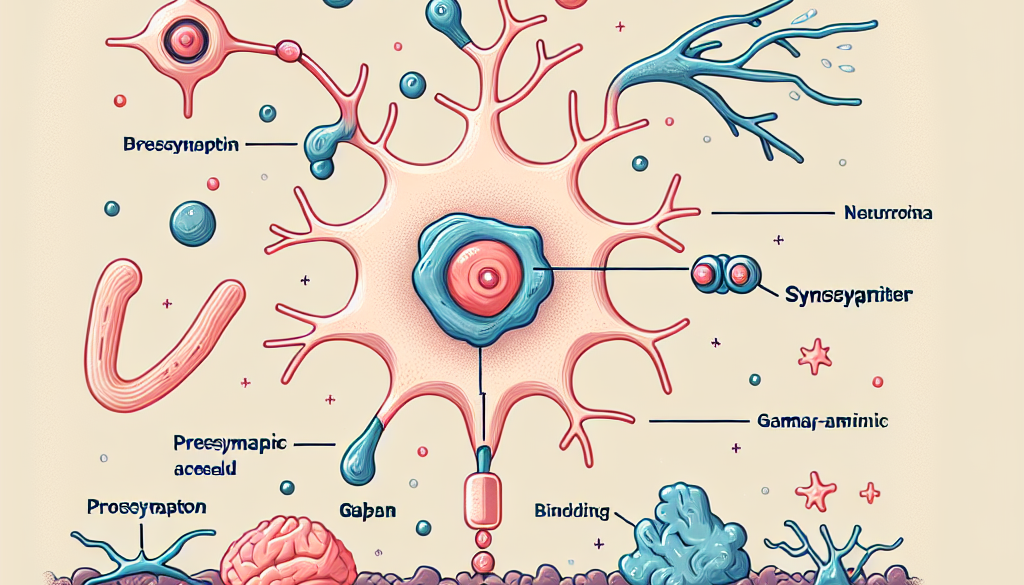GABA Gamma Aminobutyric Acid as a Neurotransmitter
-
Table of Contents
- GABA Gamma Aminobutyric Acid: Essential Neurotransmitter Insights
- Introduction to GABA
- The Role of GABA in the Nervous System
- How GABA Works: A Closer Look at Its Mechanisms
- Production and Regulation of GABA
- Therapeutic Uses of GABA
- Research and Studies on GABA
- Supplementation and Natural Sources of GABA
- Conclusion: The Importance of GABA in Neurological Health
- Explore ETprotein’s High-Quality Protein Products
GABA Gamma Aminobutyric Acid: Essential Neurotransmitter Insights
Introduction to GABA
GABA (Gamma Aminobutyric Acid) is a crucial neurotransmitter in the human brain, playing a pivotal role in reducing neuronal excitability throughout the nervous system. As the primary inhibitory neurotransmitter, GABA helps maintain the delicate balance required for optimal brain function. This article delves into the mechanisms of GABA, its effects on the brain and body, and its potential therapeutic applications.
The Role of GABA in the Nervous System
GABA’s primary function is to inhibit nerve transmission in the brain, counterbalancing the excitatory signals that lead to anxiety, stress, and fear responses. By doing so, GABA contributes to a calming effect, which is essential for balanced mental health. Here are some key functions of GABA:
- Regulation of Muscle Tone
- Reduction of Neuronal Excitability
- Modulation of Sleep Cycles
- Stress and Anxiety Management
How GABA Works: A Closer Look at Its Mechanisms
GABA operates primarily through its interactions with two types of receptors in the brain: GABAA and GABAB. GABAA receptors are ionotropic, meaning they affect the neuron by changing its ion flux and thus its electrical state. GABAB receptors, on the other hand, are metabotropic and work through secondary messenger systems, often having a more prolonged inhibitory effect.
Production and Regulation of GABA
The synthesis of GABA is primarily from glutamate, the most abundant excitatory neurotransmitter, through the action of the enzyme glutamic acid decarboxylase (GAD). This process is tightly regulated by neural activity and various biochemical pathways, ensuring that GABA levels maintain a balance conducive to healthy brain function.
Therapeutic Uses of GABA
Due to its inhibitory functions, GABA has become a significant point of interest in treating various neurological and psychological disorders. Here are some areas where GABA supplementation has been explored:
- Treatment of Anxiety and Depression
- Management of Epilepsy
- Improvement of Sleep Disorders
- Alleviation of Premenstrual Syndrome (PMS)
Research and Studies on GABA
Recent studies have highlighted the potential benefits and mechanisms of GABA in various settings. For instance, research indicates that GABA can enhance the body’s immune response under stress conditions. Additionally, its role in promoting relaxation and reducing anxiety makes it a popular supplement in the nutraceutical industry.
Supplementation and Natural Sources of GABA
While GABA is available as a dietary supplement, it is also naturally present in several food sources. These include:
- Fermented foods like kimchi, sauerkraut, and yogurt
- Whole grains such as brown rice and oats
- Vegetables like spinach, broccoli, and potatoes
- Beans and legumes
Supplementation should be approached with caution and under professional guidance, as excessive GABA activity can lead to adverse effects such as excessive sedation or respiratory depression.
Conclusion: The Importance of GABA in Neurological Health
GABA’s role as a neurotransmitter is vital for maintaining a balanced nervous system. Its inhibitory function is crucial in managing neurological health, affecting everything from muscle tone to mental stability. Understanding GABA’s mechanisms and potential in therapeutic applications continues to be a significant area of research, promising new insights and treatments for various disorders.
Explore ETprotein’s High-Quality Protein Products
If you’re interested in enhancing your health regimen, consider exploring ETprotein’s range of high-quality protein products. Their extensive selection includes organic and allergen-free options, perfect for supporting a healthy lifestyle. For more information or to sample their products, please contact sales(at)ETprotein.com today.
ETprotein is Gamma-Aminobutyric Acid Factory Manufacturer and Supplier in China, Check further information by visiting the Gamma-Aminobutyric Acid Product Page
Gamma-Aminobutyric Acid Product Page
Request Quotation and Samples of Gamma-Aminobutyric Acid from ETprotein
About ETprotein
ETprotein, a reputable protein and elite nutrition ingredients Gamma-Aminobutyric Acid Chinese factory manufacturer and supplier, is renowned for producing, stocking, exporting, and delivering the highest quality organic bulk vegan proteins and elite nutritional ingredients Gamma-Aminobutyric Acid. They include Organic rice protein, clear rice protein, pea protein, clear pea protein, watermelon seed protein, pumpkin seed protein, sunflower seed protein, mung bean protein, peanut protein. Their offerings, characterized by a neutral taste, non-GMO, allergen-free attributes, cater to a diverse range of industries. They serve nutraceutical, pharmaceutical, cosmeceutical, veterinary, as well as food and beverage finished product distributors, traders, and manufacturers across Europe, USA, Canada, Australia, Thailand, Japan, Korea, Brazil, and Chile, among others.
ETprotein specialization includes exporting and delivering tailor-made protein powder and finished nutritional supplements. Their extensive product range covers sectors like Food and Beverage, Sports Nutrition, Weight Management, Dietary Supplements, Health and Wellness Products, and Infant Formula, ensuring comprehensive solutions to meet all your protein needs.
As a trusted company by leading global food and beverage brands and Fortune 500 companies, ETprotein reinforces China’s reputation in the global arena. For more information or to sample their products, please contact them and email sales(at)ETprotein.com today.














